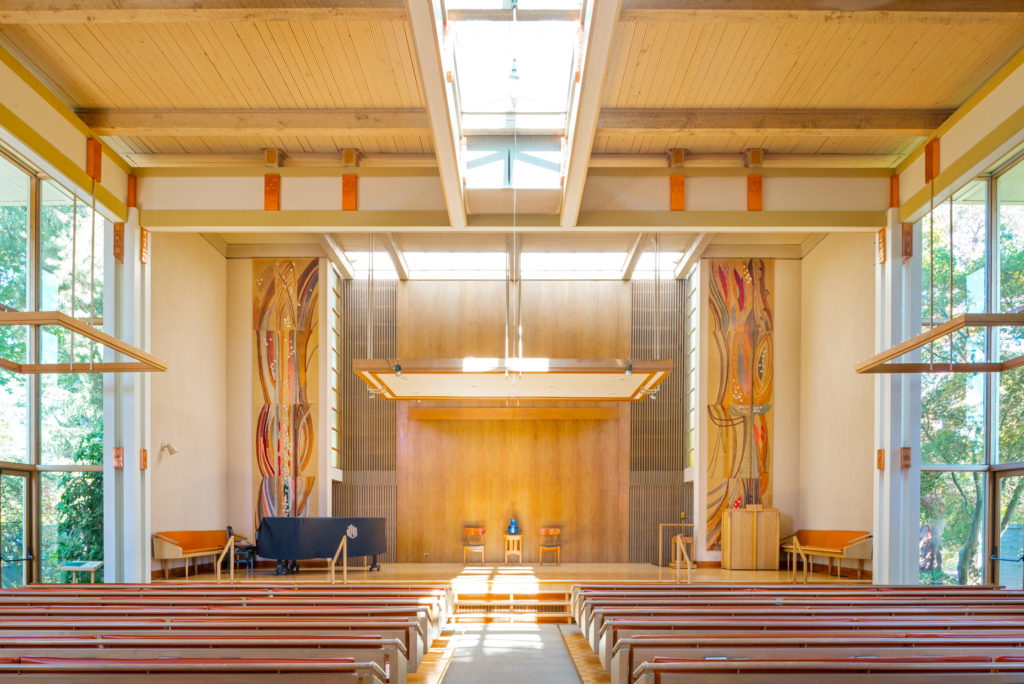I am an active member of the Baha’i Faith, an organization that is currently unable to grow, at least where I live, in Norway. My simplified analysis of the situation, is that becoming a Baha’i is too big a step, for the majority of the population. People need an opportunity to take a smaller step, first. Then, at some point in the future, measured in years or generations, they (or their descendants) will be able to make another smaller step, and become Baha’is.
This is precisely what I had to do. I had grown up in a trinitarian family in the 1950s. It was a time heavily influenced by President Dwight D. Eisenhower, which mandated church attendance. Despite hours of Sunday School, I found it impossible to understand many concepts that many Christians find fundamental. The first of these was the trinity. Yes, I can accept that there is a God. Yes, I can accept that a person called Jesus lived, and promoted a better way of life, including treating people in the same way you want to be treated. I regarded him as a prophet.
My second problem is Jesus dying for my sins. I commit my own sins and will have to bear responsibility for them myself. Like the majority, I would prefer forgiveness or grace, but it is not up to me to decide if I am worthy of it. Saying that Jesus dying on the cross, resulting in the forgiveness of others’ mistakes is too easy. It just encourages selfishness, and yet more irresponsible action.
A third problematic area has to do with the relationship between creator (normally referred to as God) and his creation (which includes us humans). I have no problems with people being indirectly created (yes, that is why we have sex!) fully accepting evolution. I have no problems with Big Bang, placing this incarnation of the universe at about 13.8 billion years of age.
One of the real challenges that I have has to do with miracles. If one accepts that there is divine intervention at the micro-level, then humans do not need to do anything about, say, the increased carbonization of the atmosphere, and its effects on climate. God will simply come along one day, and fix it for us. At the same time God could replenish the oil reserves in Saudi Arabia, so everyone can continue to drive fossil-fuelers into eternity, while the Saudi Arabians make even more money. A belief in divine intervention has enormous implications for life on this planet.
On the more personal level, a true believer in miracles has no need to change behaviour. One does not have to quit smoking, because God will not allow cellular mutants to cause lung cancer. One does not have to be particularly careful in a workshop, because God will regrow missing limbs. One does not have to reduce plastic consumption, because God will clean rivers and seas, and make everything perfect again.
Perhaps what I find most astonishing about some tribes of trinitarians, is their ambivalence. They may visit their local doctor, have blood samples taken and checked, and then use science based medications to ameliorate a medical problem. That seems sensible, and I do the same thing. Yet, these same people are unable to visit their local climatologist, have air and other environmental samples taken and checked, and then then use science based corrections to ameliorate a climate problem affecting the entire world.

My initial response to these trinitarian problems, was to search for a solution more in keeping with my beliefs and principles. I found Unitarianism to be palatable for me. This was not because of the popularity of Unitarianism. Today, in Canada, there are only 3 804 members, in 46 congregations. To say that 1 in 10 000 Canadians is a Unitarian, is an exaggeration.
Once I became a Unitarian, and accepted Jesus as a prophet, I was then able to accept other prophets, including those of the old testament, and Islam. Thus, when I became introduced to the Baha’i Faith, I could accept it on its own merits. It fit into my accepted pattern.
The Baha’i Faith is almost eight times larger than Unitarianism. The Canadian Encyclopedia writes; “As of 2015, there were an estimated 30,000 Baha’is in Canada, a number that includes French- and English-speaking members of the faith living in 1,200 communities. An estimated 18 per cent of the Baha’i community in Canada are Inuit or First Nations people, while recent immigrants make up 30 per cent.”

